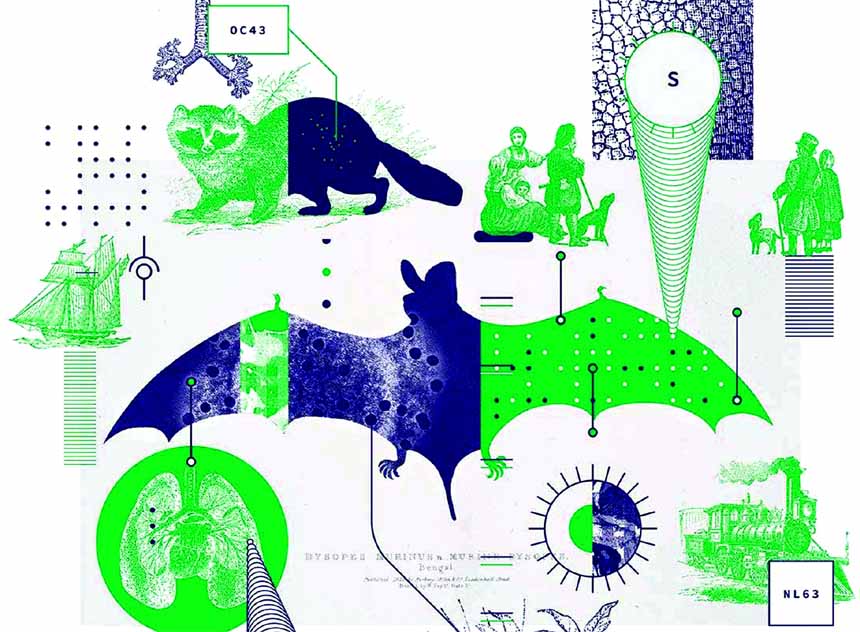
It is evident that some coronaviruses that infect animals can be spread to humans. Although the actual origin(s) of the current outbreak of severe acute respiratory syndrome coronavirus 2 (SARS-CoV-2) is still under investigation but bats have been suspected its source. The first reported infections were linked to a live animal market of Wuhan (China), but the virus is now spreading rapidly from person to person. Other suspected animals are pagolin, snake and pig.SARS-CoV-2 spreads mainly through the respiratory droplets from coughing, sneezing, and talking of the infected persons. Most recently it has been demonstrated that theinfected peopleshaving no symptomsalso play a role in the spread of this virus.
Although, to date, there is no strong evidence that animals play a significant role in spreading this virus, however, a tiger at the NY zoo was detected as a SARS-CoV-2 positive animal. Cats, dogs, and a few other types of animals can be infected with this virus. A number of reports have been published saying that certain animal can be infected with the virus worldwide, such as pet cats, dogs, lions and tigersexternal icon(USA), mink (Netherlands), large and farm cats, and other small mammals. Some animals are being tested for SARS-CoV-2 infection and also tested to see whether the pet develops antibodies to this virus.
Moreover, recent research evidence suggests that laboratory (experimental) animals such as goats (Kashmir), wild boars (Spain), monkeys (Thialand), deer (Japan), ferrets, cats (e.g., Belgium, USA, Spanish region, Hong Kong), golden Syrian hamsters, Rhesus macaques, cynomolgus macaques, African green monkeys, common marmosets can become infected SARS-CoV-2 and become sick in a laboratory setting.Mice, pigs, chickens, chickens, fishand ducks were not become infected or spread the virus based on research findings. Dogs are also suspected animals that can transmit this virus, however, it has been reported that this animal can get infected but might not spread the virus to other dogs. However, these researches were based on a small number of animals, and do not show whether animals can spread infection to people. Unlike these animals, some bacteria are also useful to diagnose human immunodeficiency virus infection and acquired immune deficiency syndrome (HIV/AIDS) and severe acute respiratory syndrome (SARS).
Finally, it has been suggested that human-to-animal transmission can occur but canine-to-canine appears unlikely. There are no reports on the transmission of this virus in aquatic animals. Generally, salts (especially table salt) can kill this virus effectively. Therefore, sea water may neutralize this virus. Adequate studies are appreciated to understand the real facts behind the transmission, pathogenesis and severity of SARS-CoV-2 between the other animals and humans.
(Muhammad Torequl Islam is Assistant Professor, Department of Pharmacy, Life Science Faculty, Bangabandhu Sheikh Mujibur Rahman Science and Technology University.E-mail: [email protected])

